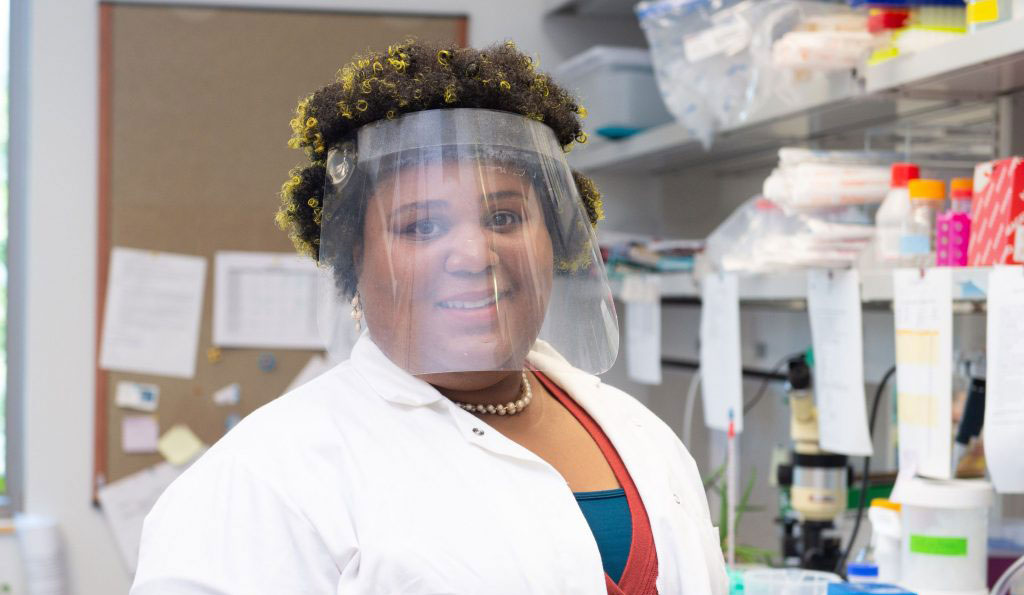Andrea Marshall: Inspiring the next generation of diverse scientists

Andrea Marshall, PhD, enjoys teaching students in the lab, focusing on the reasons behind the research.
Growing up in the South helped shape the person Andrea Marshall, PhD, is today.
“I think as part of the Southern culture, we don’t give up too easy and we’re not afraid of a fight,” she says with a warm laugh. “In looking at certain problems or how they have changed my mindset, I don’t see too many problems as unsolvable.”
That type of can-do determination is critical for a scientist. Marshall, a UI postdoctoral research scholar, credits a lifelong friend with sparking her interest in research. The two grew up together and attended the University of Southern Mississippi. At the time, Marshall was considering becoming a medical doctor or majoring in art.
“He wanted us to have all the same classes together, so he convinced me to switch majors,” she says. “We both became biochemistry majors with American Chemical Society certification. He convinced me to start working in the research lab that he was working in. I just fell in love with it [research] from there.”
Research across regions: From the South to the West to Iowa
While studying for her doctorate at the University of Alabama in Birmingham, Marshall worked in a neuroscience and genetics lab. Her focus there was on understanding the role of the ubiquitin proteasome system in motor disease.
Then Marshall read a fascinating research paper by Sue Bodine.
“By that time, I had defended my thesis and was looking for a position,” she says. “So I contacted her saying, ‘I think your work is really cool. I work with another protein in a similar system and was wondering if you have a position open.’”
Bodine did and Marshall joined her lab in 2014 at University of California, Davis.
“One of the projects they had going on at the time was looking at muscle atrophy and recovery in the context of aging,” she says. “And so that’s really how I got my first introduction into skeletal muscle and studying age-related atrophy.”
In 2017, the lab moved from UC-Davis to the University of Iowa. Marshall’s current research project focuses on how a high-fat diet can lead to anabolic resistance in skeletal muscle.
In addition to her research, Marshall also enjoys working with students and is considering a career as a professor.
“One of my favorite things to do when we get students in the lab is to not only teach them the techniques, but also teach them the why of what we’re researching,” she says. “I’m not just interested in, can you physically do the techniques, but do you understand what you’re doing and why you’re doing it?’”
Promoting diversity in the sciences
Marshall was recently named an inspiring Black scientist on the Cell Press blog “CrossTalk.”
“When I was going through university as well as in graduate school, I could count usually on one hand the number of Black professors that I’d seen across many departments,” says Marshall. “So the impression seemed to be that we’re not there. But when you look across the nation, we’re here, we’re there.”
She would like to see more universities and departments invite those professors to give lectures at their institutions. Marshall says this would allow students to become more acquainted with people of color in professorial positions and realize that it’s an achievable career goal.
Marshall encourages young Black students to consider scientific careers.
“My hope is that I can be an inspiration for future scientists just so that they can see that it’s possible,” she says. “I also hope not just to make replicates of myself, but to help people find what their individual passions are and then help guide them the best way that I can to the resources that will help them achieve their goals.”